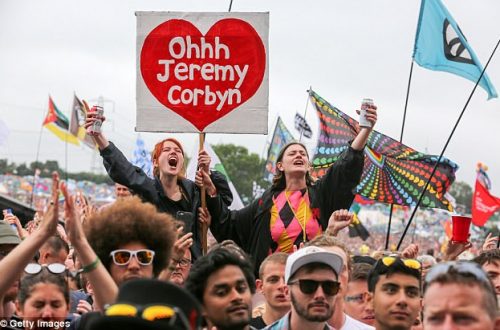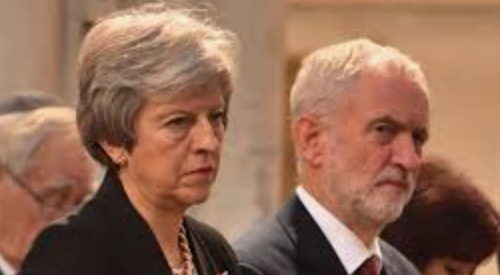Take time out today to read Jonathan Freedland’s excellent review of Anthony Julius’ Trials of the Diaspora in The New Republic.
I’ve reproduced below a long extract – but you can read it all here
Even to include anti-Zionism in a study of anti-Semitism will look like a provocation to those who believe that the two are utterly distinct. There are discontinuities between modern antiZionism and ancient Jew-hatred, of course. Julius is quite aware that antiZionism “is adopted by people who profess deep hostility to anti-Semitism … self-identified Jews are among its advocates, and … it comes from the Left—indeed, has become part of the common sense among people of a broadly progressive temper.” But the points of connection outnumber the points of departure. Julius is clear that what he calls the “new anti-Zionism” deploys against the Jews collectively—in the form of the Jewish state—many of the “principal stratagems and tropes” that traditional anti-Semitism directed at the Jews as individuals.
Julius knows the fury that such a claim will provoke in his anti-Zionist opponents, whose self-perceived distance from anti-Semitism is essential to their own self-image as anti-racists. He knows, too, how quick they will be to deploy the counter-charge, that Zionists always cry anti-Semitism when Israel is under attack. But he presses on regardless. He hints at, but does not dwell on, the case that opposition to a Jewish state may be necessarily anti-Semitic, in that it makes an exception of the Jews, denying to them alone the right it would grant to almost all other peoples, including the Palestinians, namely a self-governed home of their own. Julius argues that much anti-Israel rhetoric fails this test of exceptionalism. If the scandal is not in the amount of attention paid to Israel and Palestine—much more than to almost any of the “approximately forty armed conflicts being fought in approximately thirty countries at present”—then it is in the vehemence, the partisanship, the “one-eyed refusal to find fault with any party other than Israel.”
Again, Julius does no more than hint at a necessary connection between antiZionism and anti-Semitism. He is a careful thinker. He states that “it would be a mistake in analysis to regard confrontations with Zionism and Israel as taking place between Jews and anti-Semites alone.” He allows that the Jews sometimes have “rational” enemies, those who “find themselves in conflict with a genuine Jewish project or stance”—and that the Palestinians might fall into precisely this category. “It is thus at least possible for anti-Zionists, and in particular Palestinian anti-Zionists, to be rational enemies of those Jews who constitute themselves as Israelis.” The key word here is “possible.” For while antiZionism might not logically entail anti-Semitism, Julius sets out to show that all too often the one shades into the other, even if only as a factual matter, a matter of contingency.
His method here is English—that is, empirical rather than theoretical. He shows in one case after another how the constant refrains of anti-Zionist discourse echo those of anti-Semitism’s earlier incarnations. This exercise relies for its power on the previous 450 pages of evidence that Julius has laid before us. By the time he comes to his discussion of anti-Zionism, we may hear for ourselves the resonances between then and now.
The blood libel is the most obvious example, an anti-Semitic constant that makes its reappearance in a piece of anti-Zionist agitprop such as Paulin’s ‘Crossfire’ poem or Caryl Churchill’s mini-play Seven Jewish Children, which, in Julius’s view, depicts Jews as liars who are ready to murder gentile children thanks to a genocidal ambition rooted in Judaism itself: “Tell her I look at one of their children covered in blood and what do I feel?… Tell her I wouldn’t care if we wiped them out…. Tell her I don’t care if the world hates us, tell us we’re better haters, tell her we’re chosen people.” When one reads that passage having read Julius’s centuries-old examples of anti-Semites lighting upon the Jews’ chosenness, one shudders.
He does similar work with the proposed academic boycott of Israeli scholars, a topic of repeated debate among Britain’s various academic trade unions, exposing the ugly lineage of the boycott idea. Most people know—or so one hopes—that one of the Nazis’ first moves was the boycott of Jewish shops and businesses. Julius goes back much further, recalling the role of the English Church in the thirteenth century, which also sought a boycott of Jews lest they contaminate good Christian souls. He even demonstrates a left-wing ancestry for the boycott tactic, noting that the French socialist Proudhon wanted to see Jews barred from all kinds of employment, their synagogues closed. “In the end it will be necessary,” Proudhon wrote, to “send this race back to Asia or exterminate it.” Julius wants today’s boycott advocates to know the historical company that they are keeping. “Every call to boycott Jews or the Jewish state,” he writes, “contains within it every previous such call. Anti-Semitism’s discursive history makes this unavoidable…. A boycott call can never be innocent.”
Few echoes are louder than the one emanated by the conspiracy trope. The set text remains The Protocols of the Elders of Zion, a czarist forgery that was meant to read like a Jewish how-to manual for world domination. But the notion of a global conspiracy appears frequently in anti-Zionist discourse, too. Julius offers up examples both coarse and sophisticated. In the former category are sermons delivered by radical Islamist preachers, some of whom made their homes in London. “The people who are ruling the world unfortunately happen to be the Jews, who are the henchmen of the dajal [anti-Christ],” declared one Abdullah Al Faisal, who was jailed in 2003 for soliciting murder. In the latter category belong statements from Jenny Tonge, a member of the House of Lords for the Liberal Democrats (the junior partner in Britain’s current coalition government): “The pro-Israel lobby has got its grips on the Western world, its financial grips,” she declared in 2006. Anti-Zionists who lapse into conspiracy talk need to be aware of that theme’s provenance. A smiling Julius suggests that John Mearsheimer and Stephen Walt were just so aware when they included in their essay on the “Israel Lobby”—which argued that a shadowy, malign force was in control of the world’s sole superpower—“the anxious disclaimer” that their thesis should not be read as an endorsement of the Protocols.
But surely it is different now, the anti-Zionist will cry. For one thing, there are plenty of Jews in their camp: surely such fellowship exonerates them from the charge of anti-Semitism. Not so fast, says Julius, detailing the long and melancholy history of Jews who have stood with anti-Semites against their own people, a line that stretches all the way back to medieval times when Jewish apostates could be produced to testify to the falsity of the Talmud or the barbarity of Jewish practices. The secret-spilling renegade is still venerated today. Julius quotes the leftist polemicist Tariq Ali’s lavish praise for an Israeli-born anti-Zionist who “had long abandoned Israeli patriotism, but he had been an insider and knew a great deal.”
What of the related distinction that some anti-Zionists make between “good” Jews—those who oppose Israel—and “bad” Jews, those who stand with it? Nothing new here, either. More than a century ago, as anti-alien agitation in Britain was at its peak, anti-immigration advocates were keen to separate themselves from the anti-Dreyfus hotheads in France. An unqualified anti-Semitism became something to be ashamed of; so anti-Semites began to insist they were not against Jews as such, they were just against this particular kind. “In due course, this became a reflex,” says Julius.
Wherever they turn, anti-Zionists will find history got there first. Some, like Caryl Churchill, might think that they have found something fresh in the observation that in Israel the onetime Jewish victim has become the Jewish perpetrator. Unfortunately for them, here is Julius with the text of a sermon preached by Herbert of Losinga, the bishop of Norwich, nearly a thousand years ago, and he, too ploughed the “persecuted Jews have become persecutors” furrow. Nor should those who claim they are exhibiting great courage—or risking “the wrath of Moses,” in the words of one British newspaper columnist—by criticizing the Jewish state believe they are displaying any great originality. Joseph Banister, an anti-Semitic fanatic who described Jews as “scrofula-laden blood” at the turn of the twentieth century, also complained that unless one praised the Jews, one risked “the grave charge of anti-Semitism, which brings down on [one’s] head the wrath of almost every daily journal in London.”
The cumulative effect of all this should be to give today’s anti-Zionists pause. They have a moral and intellectual obligation to check every conceptual and rhetorical path they are about to take and ask themselves who might have been here before. For the very scrupulous, it may mean a re-thinking of their entire approach, a decision to make their case only in a language uninfected by centuries of Jew-hatred and its tropes. That will not be easy. Julius suggests anti-Zionism has become as entangled with anti-Semitism as anti-communism once was: “It is as difficult for today’s anti-Zionist to evade anti-Semitism as it was for the anti-Bolshevist of ninety years ago.” But the work is surely necessary. Otherwise today’s opponents of Israel risk hurling at contemporary Jews the accusations that anti-Semites once threw at earlier Jewish generations, that they are “bloodthirsty child-killers, global conspirators and the enemies of humanity.” That’s a description that no act of Israeli policy, no matter how misguided or brutal some have been, can justify.


